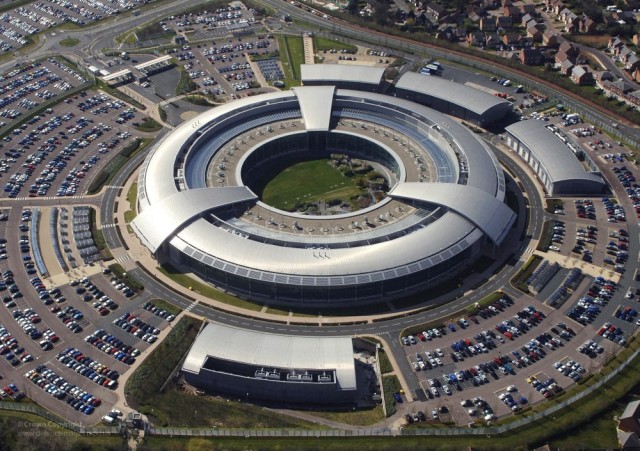Seven telcos named as providing fiber optic cable access to UK spies
New Snowden leaks show Verizon, Vodafone, and BT share direct data.

The Government Communications Headquarters (GCHQ) is based in Cheltenham, Gloucestershire, United Kingdom.
The Süddeutsche Zeitung (Google Translate) and German public broadcaster NDR (Google Translate) published not only the names of the companies, but also their Government Communications Headquarters (GCHQ) nicknames: "Verizon ('Dacron'), BT ('Remedy'), Vodafone Cable ('Gerontic'), Global Crossing ('Pinnage'), Level 3 ('Little'), Viatel ('Vitreous') and Interoute ('Streetcar')."
The German newspaper cited as its source an internal GCHQ presentation slide. It also slammed the GCHQ, the NSA's British counterpart, saying that the GCHQ had “lost all sense of proportion.”
Under Britain's Regulatory and Investigatory Powers Act (RIPA) of 2000, the government does have broad powers to conduct digital surveillance; however, many believe that this wholesale data sharing is outside the scope of targeted warrants as described under RIPA. In July 2013, Privacy International, a London-based advocacy group, sued the British government, alleging abuses under the law.
NDR also pointed out that many of these companies operate major hubs and data centers in German cities, including Berlin, Hamburg, Dusseldorf, Frankfurt, and Munich, and that a Global Crossing landing station even sits on the northern German island of Sylt.
BT, Level 3, Viatel, Interoute, and Vodafone did not immediately respond to our request for comment.
Many of the companies, however, did provide a brief statement to The Guardian, largely reiterating the same comments they've made since Snowden began leaking documents—that they were essentially forced to.
"Media reports on these matters have demonstrated a misunderstanding of the basic facts of European, German, and UK legislation and of the legal obligations set out within every telecommunications operator's licence,” a Vodafone spokesperson told the paper. “Vodafone complies with the law in all of our countries of operation.”
In an e-mail to Ars, a spokesperson wrote, "Verizon continually takes steps to safeguard our customers' privacy. Verizon also complies with the law in every country in which we operate."
Teutonic tension
The move comes the same day that Germany canceled a Cold War-era agreement with the United States and the United Kingdom that allows those two allies and France “to request German authorities to conduct surveillance operations within Germany to protect their troops stationed there,” according to the Associated Press.However, this provision has not apparently been enacted since 1990, so this dissolution is viewed as largely symbolic—German Chancellor Angela Merkel is facing re-election next month.
"We urgently need clarity on how close the relationship is between companies assisting with intelligence gathering and government," Eric King, head of research for Privacy International also told The Guardian. "Were the companies strong-armed, or are they voluntary intercept partners?"
No comments:
Post a Comment